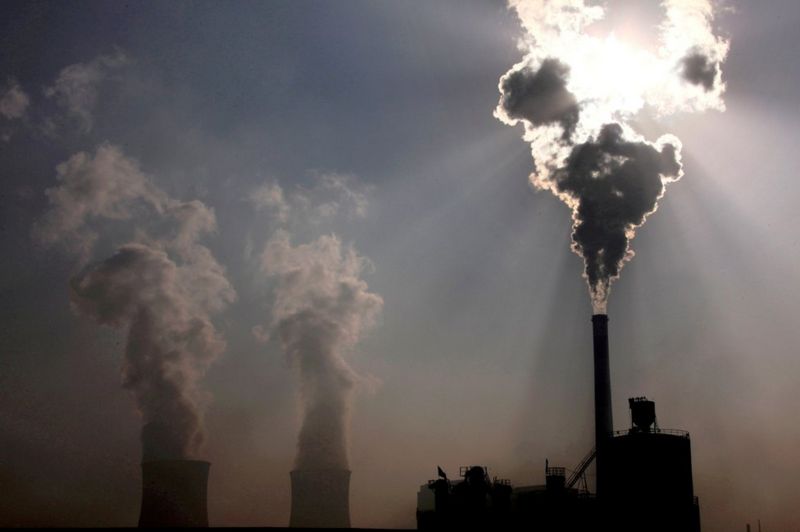The Climate Transparency Report says that CO2 will go up by 4% across the G20 group this year, having dropped 6% in 2020 due to the pandemic.
The Climate Transparency Report says that CO2 will go up by 4% across the G20 group this year, having dropped 6% in 2020 due to the pandemic.
China, India, Argentina are set to exceed their 2019 emissions levels.
The authors say that the continued use of fossil fuels is undermining efforts to rein in temperatures.
With just two weeks left until the critical COP26 climate conference opens in Glasgow, the task facing negotiators is stark.
One of the key goals of the gathering is to take steps to keep the important 1.5C temperature threshold alive and within reach.
The G20 group is responsible for around 75% of global emissions, which fell significantly last year as economies were closed down in response to Covid-19.
But this year’s rebound is being powered by fossil fuel, especially coal.
According to the report, compiled by 16 research organisations and environmental campaign groups, coal use across the G20 is projected to rise by 5% this year.
Coal use in China has surged with the country experiencing increased demand for energy as the global economy has recovered.
Coal prices are up nearly 200% from a year ago.
This in turn has seen power cut as it became uneconomical for coal-fired electricity plants generate electricity in recent months.
With the Chinese government announcing a change in policy this week to allow these power plants to charge market rates for their energy, the expectation is that this will spur even more coal use this year.
When it comes to gas, the Climate Transparency Report finds that use is up by 12% across the G20 in the 2015-2020 period.

G20 leaders met in Italy in July amid protests from green groups about the slow pace of progress on climate
While political leaders have promised that the global recovery from Covid should have a green focus, the financial commitments made by rich nations don’t bear this out.
Of the $1.8tn that has been earmarked for recovery spending, just $300bn will go on green projects.
To put that figure into context, it almost matches the $298bn spent by G20 countries in subsidising fossil fuel industries in the year to August 2021.
Wheels are turning
The report also points to some positive developments including the growth of solar and wind energy in richer countries, with record amounts of new capacity installed across the G20 last year.

Deforestation in Indonesia has been an important factor driving up emissions in recent years
However, China, India, Australia and Saudi Arabia have not yet done so.
“G20 governments need to come to the table with more ambitious national emission reductions targets. The numbers in this report confirm we can’t move the dial without them – they know it, we know it – the ball is firmly in their court ahead of COP26,” said Kim Coetzee from Climate Analytics, who coordinated the overall analysis.
There are expectations that both India and China will submit new national plans before the meeting in Glasgow, which could give a significant boost to attempts to keep the 1.5C target in view.
The G20 group will meet in Rome in the days leading up to COP26 and the UK minister who will lead the talks has in recent days urged the leaders of these countries to now step up.
“It is leaders who made a promise to the world in Paris six years ago, and it is leaders that must honour it,” said Alok Sharma.
“Responsibility rests with each and every country, and we must all play our part. Because on climate, the world will succeed, or fail, as one.”
Fonte: Bbc

